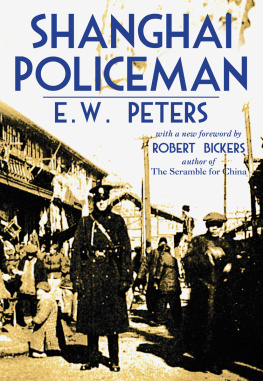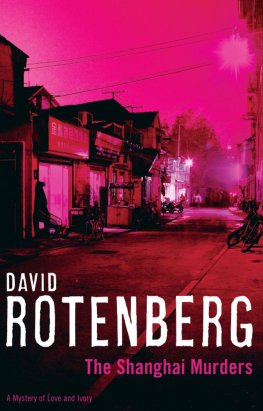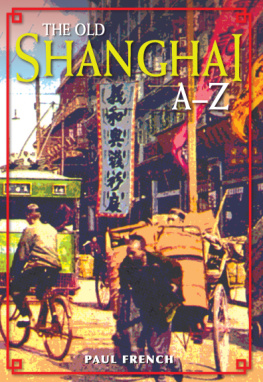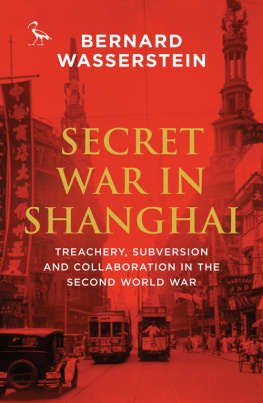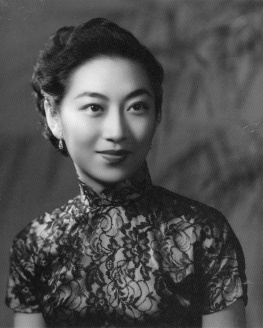Shanghai Policeman
By E. W. Peters
ISBN-13: 978-988-19983-8-5
2011 Earnshaw Books
Shanghai Policeman was first published in 1937.
HISTORY / Asia / China
EB030
All rights reserved. No part of this book may be reproduced in material form, by any means, whether graphic, electronic, mechanical or other, including photocopying or information storage, in whole or in part. May not be used to prepare other publications without written permission from the publisher except in the case of brief quotations embodied in critical articles or reviews. For information contact
Published by Earnshaw Books Ltd. (Hong Kong)
For Sumiko
LIST OF ILLUSTRATIONS
F OREWORD
I N A CITY of myths, the Shanghai policeman is an enduring symbol. All the routine problems of urban policing were exacerbated by the challenges facing a city governed by three different municipal administrations and run by at least two other police forces. He faced a powerful underworld threatthe Shanghai Green Gang, waves of kidnapping and armed robbery, intermittent civil warfare and foreign invasion, espionage and violent political terrorism. The force was well armed, and it needed to be: armed criminals had everything to lose under Chinese law, so they shot to kill. Unarmed thugs attacked the police to steal their weapons, and left no witnesses if they could help it. The numbers on the annual roll call of the dead of the Shanghai Municipal Police (SMP), which patrolled the foreign-controlled International Settlement in the city, rose steeply in the 1930s. Over 120 Sikh, Chinese, Japanese and European men were killed on duty between 1914 and 1942. So the forces memory lives on not least because it was forced to pioneer modern riot control methods, and the unarmed combat and firearms training programmes that influenced developments internationally in the middle of the twentieth century. It had to be as modern as the threats it faced.
The Shanghai connection remained a villainous one. The assumed story of the foreign recruits of the 1920s and 1930s is often that they were all ex-Black & Tansparamilitaries who served during the Irish revoltor Palestine Police, forces with a reputation for violence, or else that they were all former soldiers. But although there were many ex-servicemen in the force, the truth was more prosaic, and those who had earlier served in the colonial police were tiny in number. One reason the myths grew, was that very little was known about these men and the history of the force before the Shanghai archives began to open in the mid-1990s, as well as a sense that in a tough city the policeman must have been tough himself.
The SMP lives on in the European popular imagination through Hergs 1933 Tintin story, Le Lotus Bleu, set in a vividly realised Shanghai, while the racist and corrupt chief of the force in that volume appeared in two further instalments of the Belgian bande dessine heros story. Although the odd contemporary article about the policing of the city can be found in such publications as the Police Journal, only one man, E.W. Peters, ever published his story of life on the Shanghai beat while the force was extant. And Ernie Peters had his particular reasons for doing so, as you shall see.
An unemployed ex-army motor mechanic, Ernest William Peters, arrived in Shanghai in late November 1929, having a month earlier in London been sworn into the service of the Shanghai Municipal Council as a Probationary Sergeant. It was a routine appointment, and there was little unusual about either his background or past experience. Peters had left school at 16, worked on a troop ship and then as a colliery pony driver, before spending seven years in the Royal Tank Corps, five of them in India. A taste for service overseas probably steered him to apply to the SMP. In April 1936, after six and a half years in China, he was back in Britain, and providing interviews to the popular press about his Shanghai years: Ruined by Fight for His Honour, announced the News of the World, He won, but was left nearly penniless.
Peters announced he would be writing a book, and it is that volume, edited by Hugh Barnes and published in 1937, that you have in your hands. It is at once a memoir of the life and work of a foreign policeman in the International settlement at Shanghai, an expose, as the dust cover blurb noted, of armed gangs, drug traffic, opium smoking and Chinese methods of justice, punishments and executionsthe seconds before one of which were caught on the cover itselfand the inside tale of one of Shanghais most sensational cases of recent years, when the author was charged with the murder of a Chinese beggar. This singular memoir exemplifies, both in its tale of ordinary policing and in its account of that sensational case, the politically explosive position in which the Shanghai Municipal Police always operated.
The Shanghai Municipal Police (SMP) had been established in 1854, and had grown with the settlement from an initial complement of a score of men recruited from Hong Kong, to a force that in 1935 was almost 5,000 strong. Peters was one of 489 Foreign Branch staff, mostly Britons, leavened with White Russians, who policed the city with 583 Sikhs, 251 Japanese, and 3,574 Chinese. It was a sophisticated organisation, dealing with all the problems generated by a settled population in 1935 of 1,160,000 Chinese and foreign nationals, and those tens of thousands who came through its porous borders from the wider city of Shanghai every day. Most of the work of men like Peters was routine urban policing, but it also had an important political section, the Special Branch, which in liaison with Chinese and foreign agencies fought to break communist activism and Soviet espionage, and an innovative, world-leading riot squad, the Reserve Unit, in which Peters spent a part of his Shanghai police career.
The SMP had by 1935 recovered from its greatest disaster, the May 30th incident in 1925, when a panicking station commander, Edward Everson, fearing that political demonstrators would over-run his station just off Nanjing Road, ordered his mixed complement of mainly Sikh and Chinese constables to open fire. Everson had fired the first of the shots, and 12 Chinese died, his actions catapulting the International Settlement at Shanghai into a national and international storm. More than any other single event in the 1920s, May 30th radicalised large numbers of younger Chinese to struggle against the foreign presence in China. Anti-British boycotts were launched, and further bloody incidents in Canton and at Wuhan deepened the crisis. The Settlement survived these events, but in the aftermath its police force was augmented, professionalised under a new command, and it developed its new crowd-control strategies and enhanced its intelligence and political policing.
Ernie Peters joined as a result of this major bid by the force to boost numbers. He was one of 118 men recruited in 1929, mostly coming out from Britain in relatively small batches (partly to lessen the danger of their being subverted en route by communist agents). Like him many of those recruited in 1929 were ex-army, but they came from all walks of life. They were ex-miners, postmen, salesmen, farm-workers and railway workers, or they had been serving in British police forces. Many of those who served in the army left their regiments in Shanghai to join the SMP because they enjoyed life in the city. They generally did not make very good policemen, liking life in the city rather too much. Its entertainment culture was attractive, and even a low-ranking foreign policeman led a more comfortable life than he would have at home. They complained unfailingly, and often with reason, about the poor treatment by their self-anointed foreign social betters, but they shared many of the perks of the Shanghai life nonetheless. Some of these benefits included the bars and the nightlife they escorted their Russian or Japanese girlfriends to, and the houseboat holidays out west into the countryside for hunting game. Former servicemen were deemed good recruits by the police hierarchy, as it was assumed that they would be more amenable to discipline, but in fact most of them swapped army for police life to get into what they intended to be a more relaxed and flexible civilian job. The resulting conflicts fill the police files and disciplinary records.
Next page
